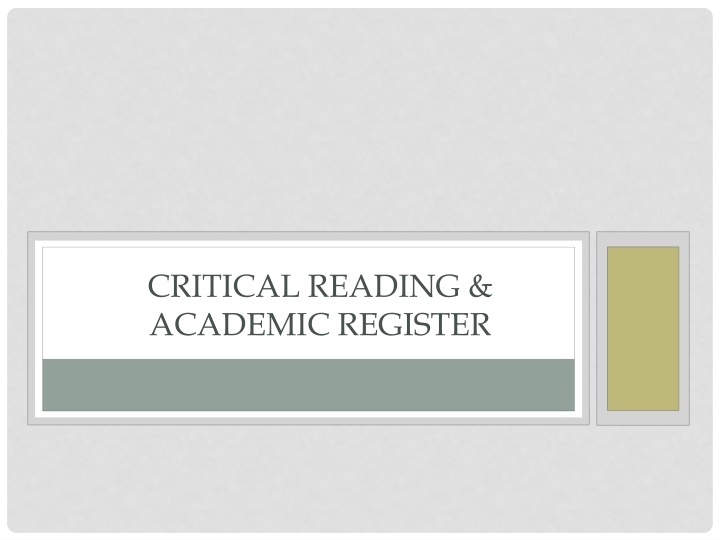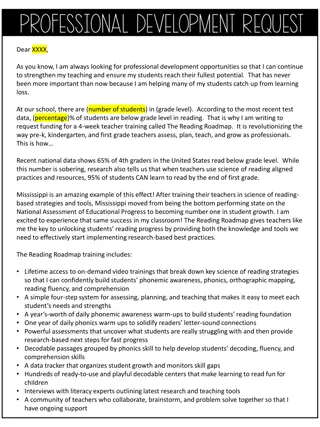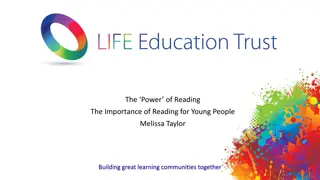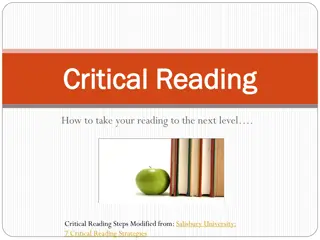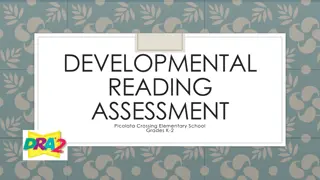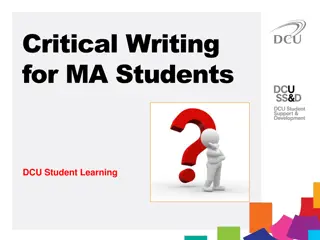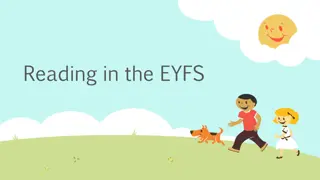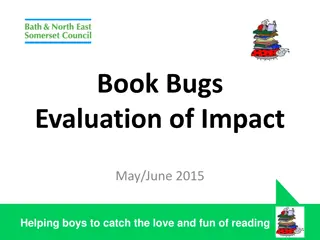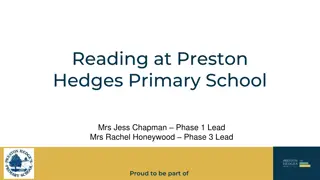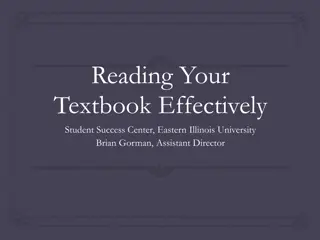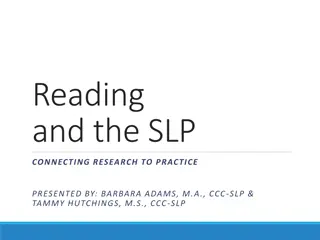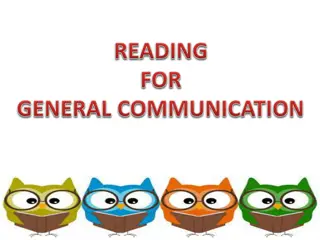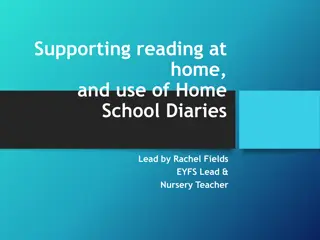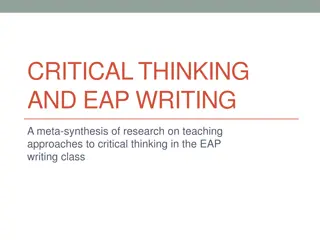Building Critical Reading Skills in Academic Settings
Explore the importance of critical reading and academic register through activities like creating advertising campaigns and reflecting on text interpretation. Understand the differences between passive and active reading, and how reflective readers engage with text to uncover meanings. Learn to challenge biases and consider different perspectives when analyzing text to enhance reading comprehension in a college setting.
Download Presentation

Please find below an Image/Link to download the presentation.
The content on the website is provided AS IS for your information and personal use only. It may not be sold, licensed, or shared on other websites without obtaining consent from the author.If you encounter any issues during the download, it is possible that the publisher has removed the file from their server.
You are allowed to download the files provided on this website for personal or commercial use, subject to the condition that they are used lawfully. All files are the property of their respective owners.
The content on the website is provided AS IS for your information and personal use only. It may not be sold, licensed, or shared on other websites without obtaining consent from the author.
E N D
Presentation Transcript
CRITICAL READING & ACADEMIC REGISTER
IN- CLASS ACTIVITY: GOING TO THE DOGS
GOING TO THE DOGS In groups of four, create an advertising campaign for a new pet product soon to be released into the pet industry. This product could be food-related or accessory related whatever! The more extravagant, the better. Make it a tough sell. Your group must decide on 1.) your intended audience 2.) your intended publication (where the ad will run) 3.) a strategic plan for how you plan to sell your product to the public and 4.) a slogan. Central to all of these questions will be your register. Which register are you aiming for?
CRITICAL READING Successful college writers are: sophisticated, skeptical, active, reflective. Reflective readers believe that the meaning of text resides in the interaction between the reader and the words. Passive vs. Active Readers
WRONG VS. RIGHT Wrong Right Unreflective Meaning in words themselves Text is unchanged for all readers Text is truth Reflective Meaning in interaction Text dependent on reading Text is testing ground for ideas, skepticism Reading id dynamic, fluid
STARTING POINT When you examine a text, begin by asking yourself: What are my beliefs about the issues addressed in the reading? How open am I to new ideas on this topic? When I feel my own biases emerging, I ask myself, What fact/figure/anecdote/condition would persuade my to think different? Ex: I m against animal testing, but if my child was ill and an animal might help in finding a vaccine, would I still be against it?
ACTIVE READINGS MEANS Considering the: Audience Purpose Content Organization Sources Graphics
THE IMPORTANCE OF AUDIENCE an author s sense of audience will greatly affect, among other things, the language she uses, the material she uses, and the organizational strategy she employs. Five star restaurant vs. McDonalds Mad Magazine vs. The New Yorker Teaching about Christopher Columbus to first graders vs. college students.
MOVIE POSTERS ANDAUDIENCE Let s spend a few moments examining current movie posters. Given what we know about the movies, who can we suspect is the primary audience? Do these films have an audience overlap? Why or why not? How do these movie posters appeal to different audiences?
IN-CLASS WRITING: AUDIENCE Why does a story you read in high school have new meaning when you read it in college. The words haven't changed. What has?
THE WORDS DONT CHANGE, YOU DO Shrek Oh, The Place You ll Go
USDA CRACKS DOWN ON INTERNET PET SALES In groups of 3, apply your critical reading skills to this short article. Turn to page 20 and focus on a few of the questions from each section.
IN SHORT The text will meet you halfway but no more. You are required to reach out and grab it.
ACADEMIC REGISTER What is the academic register? A register is a variety of language used for a particular purpose or in a particular social setting. Academic discourse is not natural; it must be learned. For some people, their primary register is by chance somewhat like academic discourse, usually making it easier for them to learn it. Academic writers must learn to shift and negotiate various registers (rhetorical dexterity). Remember, the register shifts dependent on your audience and rhetorical situation. Can you think of an example in which you switched your register?
HOW REGISTER EFFECTS RHETORIC To put it in animal terms, every dog has his day. That is, there is a time and place for everything. No xylophone note is any better or worse than any other. However, your ability to understand which register you re working within will dramatically improve your ability to employ rhetoric effectively. For this class, each segment will conclude with a paper or project to be written or produced within the academic register.
OTHER CONSIDERATIONS RELATED TO REGISTER Given my register, should I Employ humor? First person? Pathos? Personal anecdotes? Blog posts as evidence?
